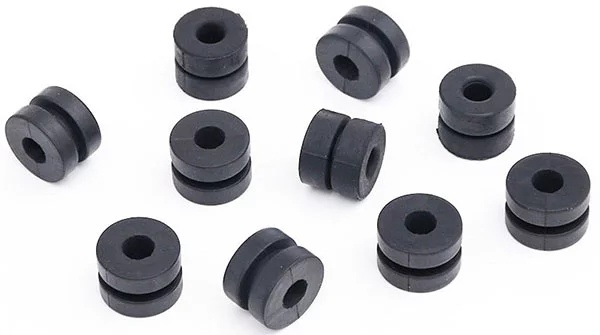08
2024
-
07
Breaking Down the Components of a High-Quality Shaft Oil Seal
Introduction
When it comes to the automotive industry, every part plays a crucial role in ensuring the smooth operation of a vehicle. One component that often goes unnoticed but is essential for keeping your engine running smoothly is the shaft oil seal. This small yet mighty part is responsible for preventing oil leaks and keeping contaminants out of the engine. In this article, we will break down the components of a high-quality shaft oil seal and discuss why it is vital for your vehicle's performance.

### What is a Shaft Oil Seal?
Before we dive into the components of a high-quality shaft oil seal, let's first understand what it is and how it works. A shaft oil seal, also known as a lip seal, is a device used to seal the rotating shaft of a vehicle's engine to prevent oil from leaking out. It consists of a flexible lip that comes into contact with the shaft, creating a barrier to keep oil contained within the engine.
### Materials Used in Shaft Oil Seals
The quality of a shaft oil seal largely depends on the materials used in its construction. High-quality seals are typically made from durable materials such as rubber, silicone, or polyurethane. These materials are resistant to oil and heat, ensuring that the seal remains effective even in harsh conditions. Additionally, the design of the seal plays a significant role in its performance. A well-designed seal will have the right balance of flexibility and strength to maintain a tight seal around the shaft.
### Components of a High-Quality Shaft Oil Seal
1. **Lip**: The lip of a shaft oil seal is the most critical component, as it is the part that comes into direct contact with the rotating shaft. A high-quality lip seal will be made from a durable material that can withstand the rigors of engine operation.
2. **Spring**: Some shaft oil seals are equipped with a spring to help maintain tension on the lip and ensure a tight seal around the shaft. The spring also helps to compensate for any wear that may occur over time.
3. **Case**: The case of a shaft oil seal houses the lip and spring, providing support and protection for these components. A sturdy case is essential for ensuring the longevity of the seal.
4. **Sealing Element**: The sealing element is the part of the seal that actually makes contact with the shaft. It is typically made from a material that is resistant to wear and tear, ensuring that the seal remains effective.
### Benefits of a High-Quality Shaft Oil Seal
Investing in a high-quality shaft oil seal can have numerous benefits for your vehicle. Some of the key advantages include:
- **Preventing Oil Leaks**: A high-quality seal will effectively prevent oil from leaking out of the engine, reducing the risk of damage and costly repairs.
- **Protecting Engine Components**: By keeping contaminants out of the engine, a shaft oil seal helps to protect critical components from wear and damage.
- **Improving Performance**: A tight seal around the shaft can help to improve the overall performance of the engine, leading to better fuel efficiency and power output.
### FAQs
1. **How often should I replace my shaft oil seal?**
- It is recommended to replace your shaft oil seal whenever you notice signs of wear or leakage.
2. **Can I install a shaft oil seal myself?**
- While it is possible to install a shaft oil seal yourself, it is recommended to seek professional help to ensure it is done correctly.
3. **What are the signs of a failing shaft oil seal?**
- Common signs of a failing shaft oil seal include oil leaks, strange noises coming from the engine, and decreased engine performance.
4. **What are the consequences of ignoring a leaking shaft oil seal?**
- Ignoring a leaking shaft oil seal can lead to engine damage, reduced performance, and costly repairs.
5. **How do I know if my shaft oil seal needs to be replaced?**
- If you notice any of the signs mentioned above or experience any other issues with your vehicle, it is best to have your shaft oil seal inspected by a professional.
In conclusion, a high-quality shaft oil seal is a vital component of your vehicle's engine system, providing protection against oil leaks and contaminants. By understanding the key components of a top-notch seal and investing in quality materials and design, you can ensure that your engine operates smoothly and efficiently. Remember to replace your shaft oil seal regularly and seek professional help if you notice any signs of wear or leakage to avoid costly repairs down the line.
More News


